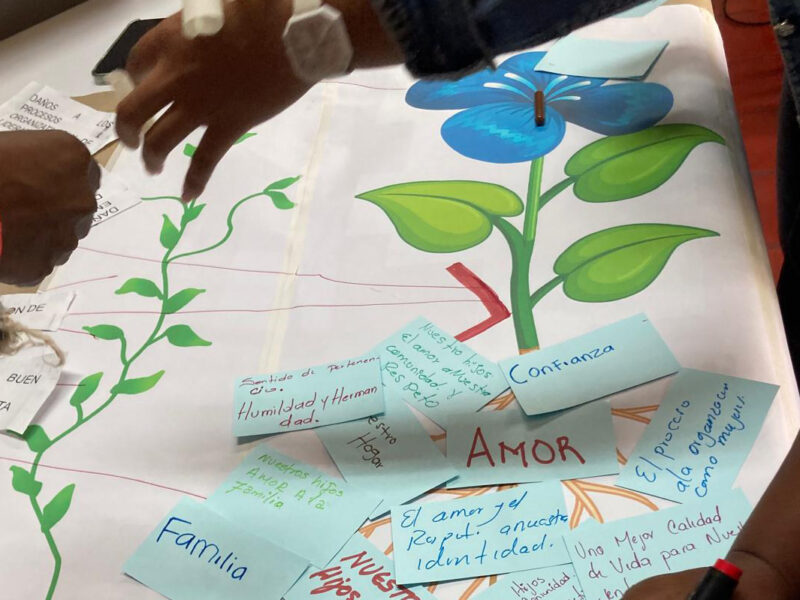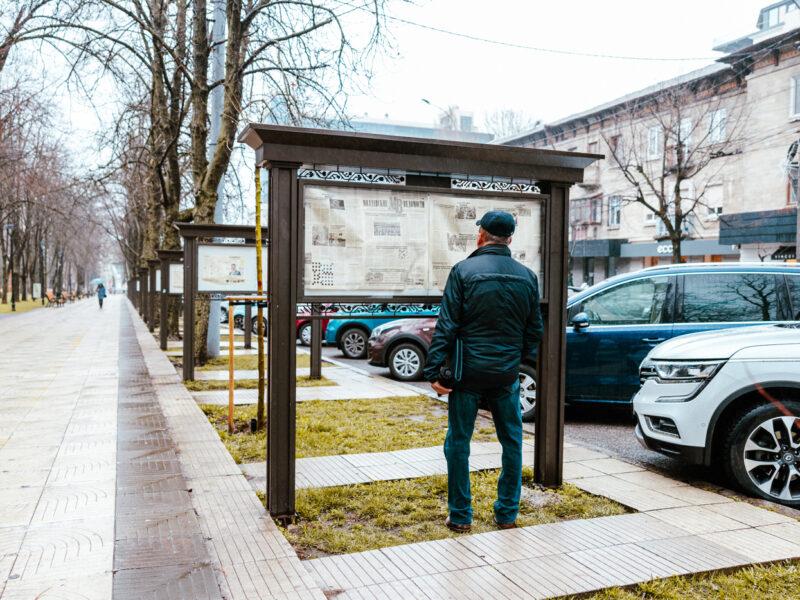Remembering Russia’s full-scale invasion of Ukraine
24 februari, 2023A personal account on Russia’s full-scale invasion of Ukraine from Julia Sedyk and Carl Fredrik Birkoff, Project Coordinator and Project Manager.
Summertime in Kyiv. People walk in the streets and cafes are open. Does it seem like as usual? At first sight, yes. Yet, one feels the fragile and almost intangible haze of war.

During more than 100 days of invasion, Ukraine has demonstrated tremendous resistance and gained wide global support. At the same time, every day of war inflicts enormous losses including the lives of thousands of civilians who have turned out to be a direct and open target.
The air strikes and artillery shelling of Ukrainian cities, as well as explosions and shooting by Russian armed groups have led to the destruction of state and private properties, roads, and other essential infrastructure. The number of Ukrainians seeking refuge in nearby countries has exceeded 6,8 million people, mostly women and children. The number of internally displaced people exceeds 8 million.
Since 2014, FBA has worked with strengthening the capacity of local authorities and municipalities in Ukraine to deliver administrative services in accordance with rule of law principles.
With the increasing number of refugees and internally displaced persons, authorities are dealing with a growing number of issues related to provision of administrative services, such issuing ID-cards and passports or distributing financial and social aid. Since the start of the invasion, the public authorities are being overloaded and often lack resources, mainly expertise, to make a sound and detailed legal analysis before making decisions.
At the same time, the citizens who receive public services are often unaware of the particularities of the provision of services under the war conditions, the changes that might have occurred because of the war, including changes in legislation that might impact their rights. The increased number of internally displaced people is also in itself an additional challenge that impacts the provision of services.
FBA is keen to continue its support to Ukraine, through its activities based on strategic, long-term partnerships with local stakeholders both from the governmental area and civil society.
It is expected that after the war a substantial effort will be needed in the application of the rule of law in public administration. In particular, this will affect the provision of public services to the general population and the groups affected by the war (that might include a large number of the general population), and reintegration of veterans (their number will rise comparing to the pre-war of 2022 situation that reached 420 000).
In addition, efforts will be needed to prevent new conflicts in communities facing economic and social challenges after the war, as well as issues related to security and access to justice. The destruction will require extensive reparation and compensation.
FBA is keen to continue its support to Ukraine, through its activities based on strategic, long-term partnerships with local stakeholders both from the governmental area and civil society.
This support includes creating a build back better methodology for Ukrainian cities, seizing the opportunity to promote a new paradigm for previously corrupt or otherwise problematic aspects of society.
It also includes conducting an initiative together with the Rule of Law Center at the National University of Kyiv-Mohyla Academy called “law during the wartime”. The project creates policies for local authorities on how to address the needs of victims of sexual and gender-based violence during the conflict. Another initiative is to create conditions for the reintegration of veterans after war including work with the judiciary.
There is no clear answer to the timing or outcome of the current situation. However, the massive destruction does not affect the area the FBA has worked with the most – creating connections and opportunities, sharing knowledge and ideas.
av Carl Fredrik Birkoff, Julia Sedyk
Democratic practices have a long history in Iraq. But as a consequence of the more recent decades of authoritarian and centralized rule, the distinct responsibilities of citizens and the state in a democracy cannot be taken for granted.

Är det viktigare att veta sanningen om krigsbrott än att de skyldiga hamnar i fängelse? Världen drar lärdomar när Colombia banar nya vägar mot fred. År 2016 skrev FARC-gerillan och Colombias regering på ett fredsavtal som innehöll en väldigt nydanande metod för övergångsrättvisa. Avtalet etablerade nämligen en ny domstol som dömer de mest ansvariga för […]

Valet i Moldavien 2024 utgör ett tydligt exempel på hur hoten mot fria val blir alltmer komplexa. För att värna demokratin måste vi stärka ansvariga institutioner i att motverka hybrida hot. Demokratin befinner sig globalt på tillbakagång. Parallellt med att auktoritära styren stärker sitt grepp, utmanas fria och rättvisa val av en rad faktorer: ökande […]

Om FN inte fanns, skulle organisationen behöva uppfinnas. Den sanningen har upprepats ofta, och är väl värd att hålla fast vid i en tid då marken under FN-skrapan i New York gungar.